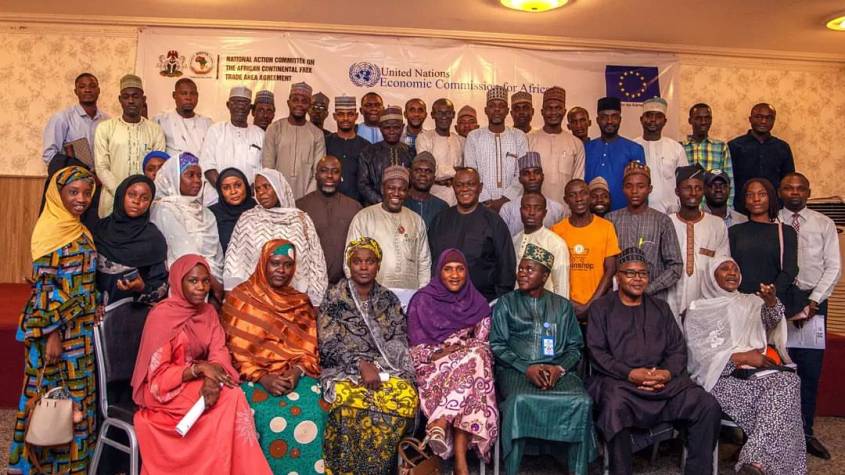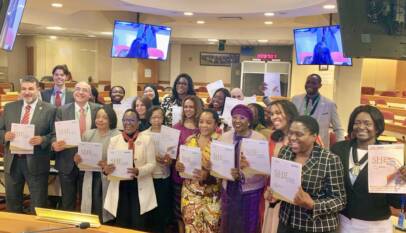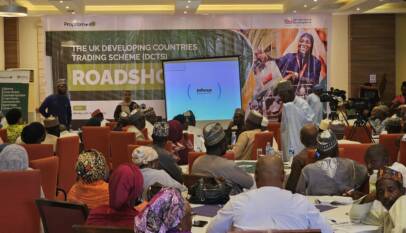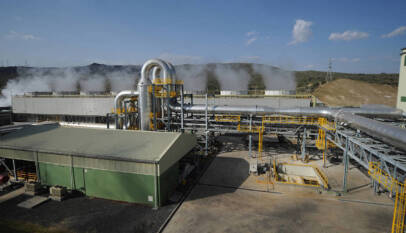As Nigeria develops implementation strategy for AfCFTA
Nigeria recently hosted series of consultations with business stakeholders involved in trade in goods and services, as part of wider consultations aimed at the development of a national strategy for the implementation of the AfCFTA.
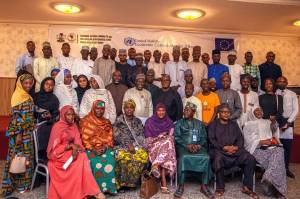
Stephen Enoch
The African Continental Free Trade Area (AfCFTA) Agreement seeks to facilitate free movement of goods, services and investment across Africa. Consequently, the Agreement will foster an era of economic growth, jobs and wealth creation in Africa, thanks to a continental market for 1.3 billion people worth USD3.4 trillion.
Despite being Africa’s biggest economy, Nigeria had initially displayed a rather reluctant attitude to the whole AfCFTA process. Hence, despite once being Africa’s undisputed leader and having been at the centre of Africa’s quest for regional integration, Nigeria was only the 53rd out of 55 African countries to sign the AfCFTA during the Agreement’s historic launch in July 2019. In November 2020, Nigeria became the 34th country to ratify the AfCFTA agreement.
Considering the country’s huge market of over 200 million people cum a relatively vibrant and diverse industrial base, Nigeria could immensely benefit from both the opportunity to export its goods and services to the African market, on the one hand; and access to cheaper goods and services from other African markets, on the other hand. To its credit, Nigeria had since ratifying the AfCFTA not rested on its oars as it tries to play a catch-up in the AfCFTA process.
In December 2020, President Muhammadu Buhari inaugurated the National Action Committee (NAC) for the Implementation of the African Continental Free Trade Area Agreement (AfCFTA). Consequently, the NAC- AfCFTA Secretariat has been actively promoting Nigeria’s implementation strategy for the landmark trade agreement, essentially positioning the country to optimally benefit from the AfCFTA market, through multi-stakeholder consultations.
The NAC-AfCFTA Secretariat is mandated to guide Ministries, Departments and Agencies (MDAs) and the organized private sector towards the steady implementation of the AfCFTA. To this end, the Secretariat recently engaged Nigerian business stakeholders involved in trade in goods and services, as part of wider consultations aimed at the development of a national strategy for the implementation of the AfCFTA in Nigeria.
The business stakeholders’ consultations, which was supported by the United Nations Economic Commission for Africa (UNECA), were held sequentially at Nigeria’s commercial nerve centers of Lagos and Kano. The consultations was also aimed at intensifying an understanding of how key sectors of the Nigerian economy could maximally benefit from the massive opportunities the AfCFTA presents to the country.
Francis Anatogu, executive secretary of the NAC-AfCFTA Secretariat says engaging the trade community and private sector as part of the development of Nigeria’s national strategy for the implementation of the AfCFTA would guide the Secretariat in formulating the country’s vision and targets for the trade agreement. He was optimistic the AfCFTA would boost Nigeria’s currently low-level non-oil export.
“First, we need to grow the demand for Made-in-Nigeria products and make Nigerians consume them, and subsequently export them to the rest of Africa. In this direction, SMEs will be supported to boost the production of goods and services which will ultimately increase demand for Nigerian products and services in Africa. As part of our implementation plan, we have an e-commerce initiative aimed at making Made-in-Nigeria products visible and more accessible,” Anatogu stated.
Dr Souleymane Abdallah, chief economist at ECA’s regional integration and trade division, said the AfCFTA would boost trade in value added products and consequently create jobs and wealth in Africa. “The AfCFTA is set to achieve harmonization of African markets by removing all barriers to trade, particularly the tariff barriers, which slackens trade. It will also remove non-tariff barriers inhibiting trade within the continent and help Africans patronize African products.”
Abdallah said Nigeria being Africa’s largest market with a population of over 200 million meant the country would significantly benefit from the Free Trade Area (FTA). “It is very commendable that the Nigerian government and stakeholders in the private sector are [now] enthusiastic about the AfCFTA which is evident in their partnership to ensure there is an increased level of value creation.”
The lead facilitator at the business stakeholders’ consultations, Jonathan Aremu, a professor of international economic relations at Covenant University, Nigeria agrees with Dr Abdallah. Prof Aremu was certain the AfCFTA would enable Nigerian businesses to thrive beyond the shores of their country and subsequently reduce the country’s overdependence on manufactured imports as well as excessive export of raw materials.
“One of the beautiful things about the AfCFTA is that trade will be carried out in domestic currencies. If a Nigerian wants to buy a product from a Kenyan, the Nigerian will purchase the product in Naira while the Kenyan will be paid in Kenyan Shillings. This system will make trading faster, easier and there will be no need for foreign exchange to trade products and services,” Prof. Aremu noted.
One of the business stakeholders in attendance at the Kano consultations, Zahradden Sa’ad, said he was optimistic that the AfCFTA would have a positive impact on the Nigerian economy. “If committedly implemented, poverty would be significantly reduced. However, to achieve this, the informal sector should be more enlightened on the massive opportunities of the AfCFTA so as to boost their trade with other African economies.”
While there is a general sense of optimism around the potential of the AfCFTA to lift 30 million Africans out of extreme poverty and boost Africa’s income by $450 billion by 2035, it is worth understanding that the FTA is an initiative whose long-cherished benefits for Nigeria and other state parties to the Agreement will not be fully actualized overnight. Hence, the full benefits of the AfCFTA’s enhanced level of intra-African trade will take time to become a reality.

